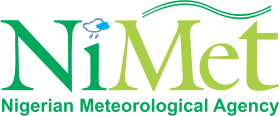
The director-general of the Nigerian Metrological Agency (NiMet), Prof. Mansur Matazu, has highlighted a working, fast early warning system as the key to saving lives and property to prevent huge losses.
Matazu disclosed this during the World Meteorological Organisation Convention held in Abuja to mark the celebration of the establishment of the World Meteorological Organisation on March 23, 1950, themed: “Early Warning and Early Action. Hydrometeorological and Climate Information for Disaster Risk Reduction”.
“The Nigerian Meteorological Agency (NiMet) is the organisation saddled with the responsibility of advising the government and people of Nigeria on every aspect of meteorology, including the socio-economic impacts of climate and weather. Emphasise the critical role of issuing warnings/forecasts early enough for prompt and early action by various stakeholders.
“To reduce risks associated with weather-related disasters, both National Meteorological (NiMet) and Hydrological Agency (NIHSA) and disaster managers (e.g., NEMA, FEMA and SEMA etc.) must work in synergy. This will assist in better national prevention, preparedness and response strategies. An example of best practice is the adoption of co-production techniques in the seasonal climate prediction (SCP) of NiMet. Over the years, it has served as a multi-stakeholder early warning tool.
“Aside from the SCP, NiMet has an array of other products and services which are part of our catalogue of early warning tools. However, these are perishable and must be utilised on time. That is why we were encouraged by the Minister of Aviation, Senator Hadi Sirika, during the public presentation of the SCP, to rise, take NiMet forecast and respond with appropriate actions for resilience, adaptation and mitigation.
“The agency has gone into partnership with government MDAs such as NIMASA and FMARD and non-governmental organisations such as HEDA, APPEALS, IFAD VCDP and LIFE-ND, state airports in Asaba, Anambra, amongst others. We have improved our relationships with sister agencies in the aviation industry for improved service delivery.
“One of the highlights of 2021 was the passage of the repealed NiMet Bill spearheaded by the minister of aviation. This bill will improve our operations and add regulatory framework for the agency to perform optimally and position for effective weather and climate services for sustainable socio-development in the country,” he further added.
Matazu went ahead to hail the World Meteorological Organisation (WMO) as the United Nations (UN) system’s authoritative voice on the state and behaviour of the Earth’s atmosphere.
“As an intergovernmental organization, WMO originated from the International Meteorological Organisation (IMO), conceived at the 1873 Vienna International Meteorological Congress. However, on the 23rd of March 1950, it became ‘World Meteorological Organisation’ after ratification at its convention.
“The World Meteorological Organisation (WMO) is the United Nations (UN) system’s authoritative voice on the state and behaviour of the Earth’s atmosphere, its interaction with the land and oceans, the weather and climate it produces and the resulting distribution of water resources.
“The organisation became the specialised agency of the United Nations for Meteorology (weather and climate), operational hydrology and related geophysical sciences a year later. As a specialised agency of the UN, the WMO is responsible for monitoring and forecasting the state of the world’s atmosphere, climate and water.
“With 187 member states and 6 member territories, WMO has six regional associations Africa, Asia, South America, North America, Central America and the Caribbean, Southwest Pacific and Europe through which WMO programmes and activities are implemented in support of developments in the respective member states,” he said.

